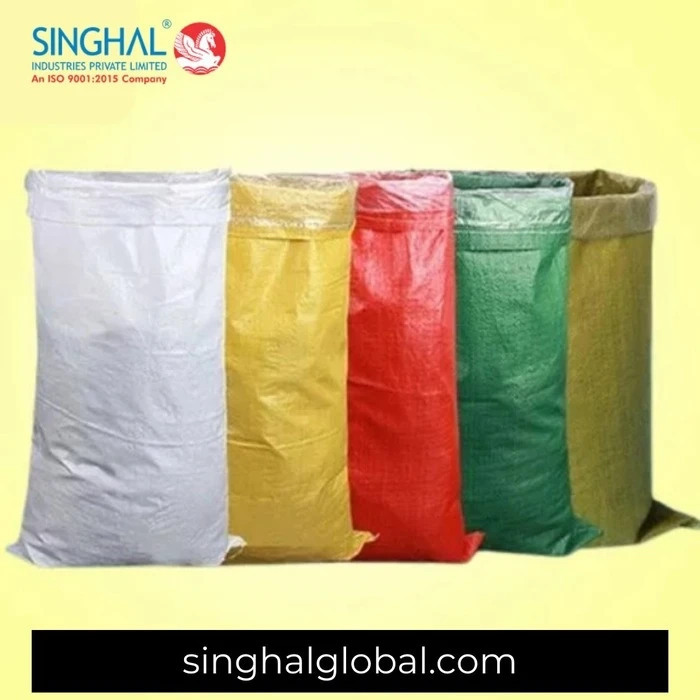In the ever-evolving landscape of packaging, sustainability, durability, and cost-effectiveness are paramount. Among the array of materials used, Polypropylene woven fabric has emerged as a game-changer. This article delves into the evolution of packaging, focusing on how polypropylene woven bags are reshaping industries globally.
The Emergence of Polypropylene Woven Fabric
1. What is Polypropylene Woven Fabric?
Polypropylene woven fabric, commonly known as PP woven fabric, is a versatile material made from polypropylene resin. It is manufactured through a weaving process, resulting in a strong, lightweight, and durable fabric.
2. Advantages of Polypropylene Woven Fabric
PP woven fabric offers numerous advantages over traditional packaging materials. It boasts exceptional strength, tear resistance, and UV protection, making it ideal for various applications. Additionally, it is highly customizable, allowing for printing of logos, designs, and product information.
Polypropylene Woven Bags: A Sustainable Packaging Solution
1. Properties of Polypropylene Woven Bags
Polypropylene woven bags, crafted from PP woven fabric, are gaining popularity as a sustainable packaging solution. These bags exhibit remarkable strength-to-weight ratios, ensuring optimal protection for goods during transportation and storage. Furthermore, they are reusable, recyclable, and eco-friendly, aligning with the growing demand for sustainable practices.
2. Environmental Impact
One of the most significant advantages of polypropylene woven bags is their minimal environmental impact. Unlike single-use plastic bags, PP woven bags can be reused multiple times and recycled at the end of their lifespan. This reduces the accumulation of plastic waste in landfills and oceans, contributing to a healthier planet.
Transformation of Industries
Polypropylene woven bags are catalyzing transformation across various industries.
1. Agriculture
In the agricultural sector, these bags are revolutionizing packaging and storage practices. Farmers rely on PP woven bags to safeguard crops such as grains, seeds, and fertilizers from moisture, pests, and physical damage. Their durability ensures long-term protection, preserving the quality of agricultural produce.
2. Construction
In the construction industry, Polypropylene woven bags are indispensable for transporting and storing materials like sand, cement, and gravel. Their robust construction withstands the rigors of construction sites, facilitating efficient logistics and minimizing wastage.
3. Retail and Shopping
Retailers are increasingly adopting polypropylene woven bags as an alternative to traditional plastic bags. These reusable bags not only reduce environmental impact but also serve as a branding opportunity. Customized with logos and designs, they enhance brand visibility and customer engagement.
Role in Reducing Carbon Footprint
The utilization of polypropylene woven bags contributes to a significant reduction in carbon footprint. By replacing single-use plastics with reusable and recyclable alternatives, industries can mitigate environmental degradation and combat climate change. This transition towards sustainable packaging solutions aligns with global efforts to achieve a greener and more sustainable future.
Innovation and Customization
The versatility of polypropylene woven fabric allows for innovation and customization in packaging design. Manufacturers can tailor bags to meet specific requirements, incorporating features such as handles, zippers, and laminations. Furthermore, advancements in printing technology enable high-quality graphics and branding, enhancing product visibility and consumer appeal.
Future Trends
The future of packaging lies in sustainable materials like polypropylene woven fabric. As awareness of environmental issues continues to grow, industries will increasingly adopt eco-friendly solutions to meet consumer demands and regulatory standards. Innovations in material science and manufacturing processes will drive further advancements in PP woven bags, making them even more versatile, durable, and cost-effective.
Challenges and Solutions
Despite their numerous benefits, polypropylene woven bags face challenges such as moisture susceptibility and limited biodegradability. However, ongoing research and development efforts aim to address these issues through the formulation of biodegradable additives and moisture-resistant coatings. Additionally, initiatives promoting recycling and circular economy principles are gaining traction, ensuring the responsible end-of-life management of polypropylene woven bags.
Conclusion
In conclusion, the evolution of packaging is characterized by a shift towards sustainable and eco-friendly solutions. Polypropylene woven bags exemplify this transition, offering durability, versatility, and environmental responsibility. As industries embrace these innovative packaging solutions, they not only enhance operational efficiency but also contribute to a healthier planet for future generations.
FAQs (Frequently asked questions)
Q1. Are polypropylene woven bags suitable for food packaging?
A1. Yes, polypropylene woven bags are food-safe and commonly used for packaging grains, flour, rice, and other food items.
Q2. Can polypropylene woven bags be recycled?
A2. Yes, polypropylene woven bags are recyclable. Many recycling facilities accept them for processing into new products.
Q3. Are polypropylene woven bags waterproof?
A3. While polypropylene woven bags are resistant to water, they are not entirely waterproof. However, moisture-resistant coatings can be applied to enhance their water resistance.



